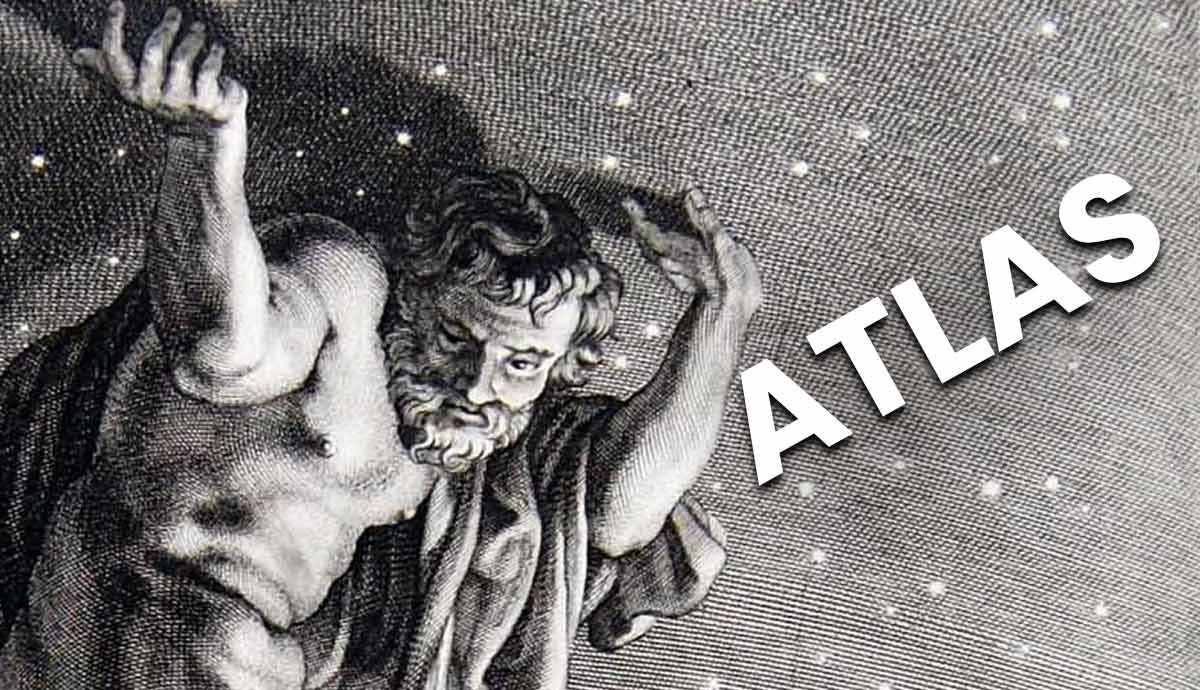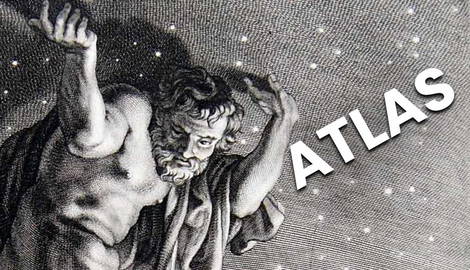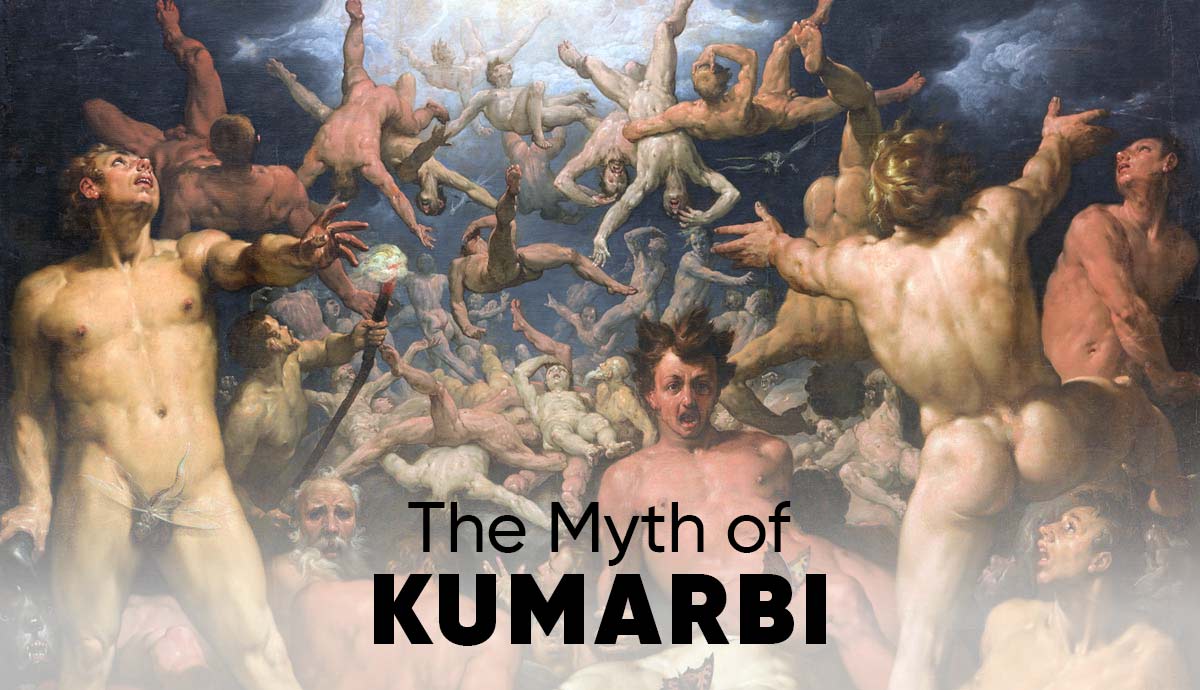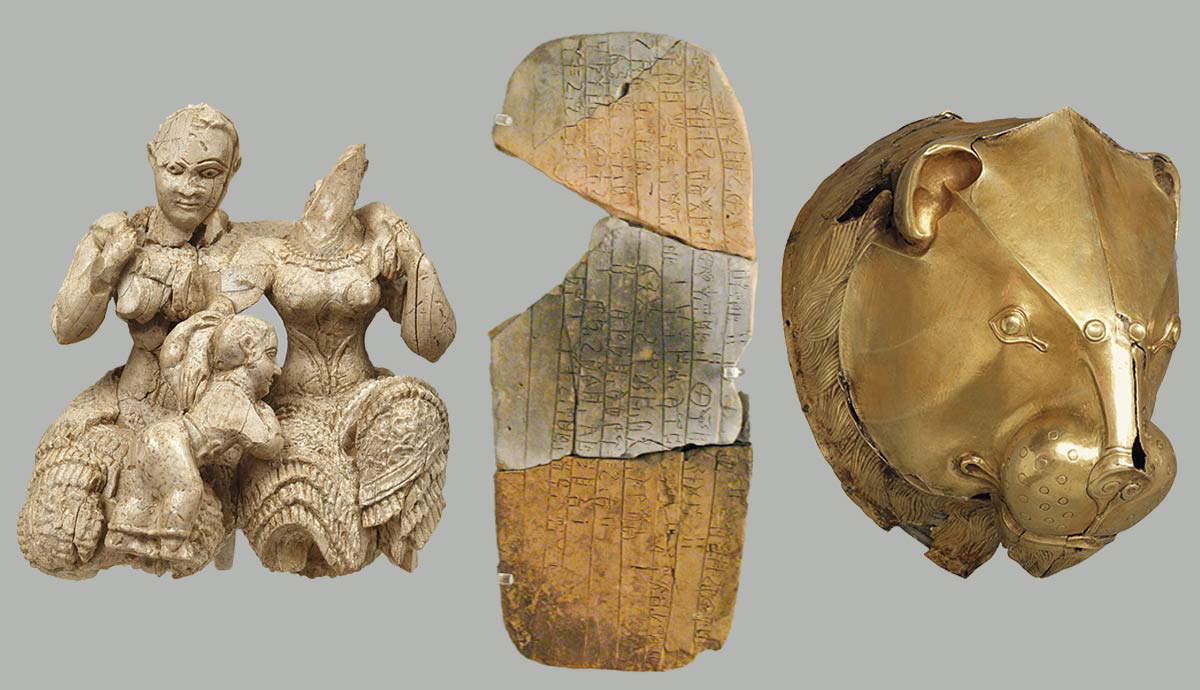
According to some versions of Greek myth, Atlas was a Greek god who fought on the side of the Titans against Zeus when he claimed control of the heavens. As punishment, Zeus made Atlas responsible for holding up the heavens on his back, at least according to some myths. Many variations of Atlas’ labor exist in the surviving sources.
Atlas, Son of Iapetus

According to Hesiod, Atlas was born to the Titan Iapetus and a daughter of Oceanus named Clymene. His mother was also sometimes known as Asia, such as in Apollodorus’ Library of Greek Myth, though he seems to be equating the two goddesses. While Atlas was considered a Titan like his father, this designation was given by later authors. The earliest reference to the Titans comes from Hesiod’s Theogony, and the term was used specifically to describe the children of Ouranos who rose up and overthrew him.
Atlas had three brothers, all of whom played important roles in Greek mythology. The first is Prometheus, the god of foresight, who stole fire for mankind and was sometimes venerated as the creator of mankind. The second is Epimetheus, whose name means “afterthought,” who was given Pandora as a wife as a punishment for humanity. The third is Menoetius, whom Zeus smote with his thunderbolt and cast into Tartarus for his role in the Titanomachy.
Father of the Stars

Given his role in supporting the heavens, Atlas was very closely associated with astronomy, and many of his children would become stars and constellations.
With the Ocean nymph Pleione, Atlas had 12 daughters and one son. Seven of the daughters were collectively known as the Pleiades and associated with the constellation of the same name. They were Taygete, Electra, Alcyone, Sterope, Celaeno, Maia, and Merope. Several of them became Zeus’ mistresses, and one of them, Maia, would give birth to the messenger god, Hermes. By Zeus, Taygete was the mother of Lacedaemon, the ancestor to the kings of Sparta, and Electra gave birth to Dardanus, the ancestor to the Trojan royal family.
According to Hyginus, Electra does not appear as part of the Pleiades constellation because, after the fall of Troy and the deaths of her descendants, Electra left her sisters and placed herself in the Arctic Circle. As a result of her keeping her hair long and unbound from grief, she was called a comet.

Alcyone and Celaeno were lovers of Poseidon, and they each gave birth to sons, although none are featured much in mythology. Sterope was a lover of Ares, and she gave birth to Oinomaos, the founding king of Pisa. Oinomaos was the father of Hippodamia, who would become the wife of Pelops, the grandfather of the Mycenaean king Agamemnon. The circumstances of her betrothal to Pelops would compound a curse on the family that would afflict them for generations.
Merope was the only one of the Pleiades not to be entangled with a god. Instead, she was the wife of the mortal king Sisyphus and the ancestor of the hero Bellerophon. Atlas’ other five daughters were known as the Hyades, named for the love they had for their brother, Hyas. When Hyas was killed during a lion hunt, the sisters died of grief and were placed among the stars. Hyas, too, became a constellation.
Other notable children of Atlas are Calypso, Dione, and the Hesperides. Calypso featured prominently in Homer’s Odyssey, famously delaying Odysseus for seven years on his return journey from the Trojan War. It was only at Zeus’s command that she finally released him. Dione was the wife of Tantalus and mother of Pelops. The Hesperides were goddesses of evening and sunset and were entrusted to guard the golden apples that were presented to Hera at her wedding to Zeus.
Leader of Titans

Though only referenced briefly in Hesiod’s Theogony, he says that Atlas sided with the Titans when the Olympians sought to overthrow them during the decade-long succession war known as the Titanomachy. Other authors, such as Roman mythographer Hyginus, suggest that Atlas more than simply participated in the war – he led the effort. A passage from Nonnus Panopolis’ Dionysiaca gives an illustrative account of the threat Atlas likely posed during the war. During an episode when Typhoeus threatens Zeus, he says:
“Let him [Atlas] break off rocks, and volley with those hard shots the starry vault which he once carried! Let the timid Horae the Sun’s handmaids, flee the heavens under the shower of mountains! Mix earth with sky, water with fire, sea with Olympos, in a litter of confusion!” (2.258-2.273)

In a variation of the traditional myth, Hera was upset that Epaphus, the king of Egypt and the son of Zeus and Io, ruled over such a large kingdom. Seeking to punish her unfaithful husband and his son, she determined that Epaphus should be killed while hunting. She encouraged the Titans to drive Zeus out of Olympus. Led by Atlas, the Titans scaled the mountain but were cast down by Zeus with the help of Athena, Apollo, and Artemis. They were flung into Tartarus. This story somewhat conflicts with Hesiod’s version, given that Hyginus wrote that the war was to drive Zeus from the kingdom and restore it to Kronos, suggesting that this happened after the events of the Titanomachy.
The Burden of Heaven

For his role in the Titanomachy, Atlas was sentenced to hold up the heavens. In the epics of Homer, particularly the Odyssey, this was not imagined as Atlas literally carrying the heavens on his shoulders but rather supporting the pillars that held up the sky. It bears considering why he was tasked with supporting the pillars of heaven, given that they were perfectly stable up until the conclusion of the Titanomachy. Looking again at the passage from Nonnus Panopolis’ Dionysiaca, perhaps Atlas’ crime wasn’t simply leading the revolt but also breaking the pillar supporting the heavens.
The concept of pillars holding up the heavens is not unique to ancient Greece, but even in Homer’s time, this concept was slowly fading. Hesiod’s account in the Theogony, composed around the same time as Homer’s Odyssey, says nothing of pillars and states that Atlas holds the heavens on his shoulders.
The Labor of Heracles

During Heracles’ labor to retrieve the golden apples from the garden of the Hesperides, Heracles encountered Prometheus in the Caucasus mountains. In return for killing the eagle tormenting him, Prometheus told the hero how to get to the gardens and advised him not to seek out the apples himself when he arrived. Instead, he should relieve Atlas of his burden and ask him to get the apples.
Heracles took Prometheus’ advice and told Atlas that he would take the heavens onto his shoulders while Atlas retrieved three golden apples. When Atlas returned, he didn’t want to take up the sky again, so he told Heracles that he would bring the apples back to complete the labor for him while Heracles stayed holding up the heavens. Heracles knew the ruse for what it was and agreed, then cleverly asked if he could first put a cushion on his head. Sympathetic to the burden of supporting the sky, Atlas put down the apples and put the heavens back on his shoulders for a moment so Heracles could get himself a cushion. The hero then picked up the apples and left.
Another version of the story leaves out the encounter with Atlas and instead has Heracles enter the garden of the Hesperides and kill the dragon guarding the apples. He then plucked them from the tree himself and returned to complete the labor.
Perseus and the Atlas Mountains

In a later myth recounted by Roman poet Ovid in his Metamorphoses, Perseus once arrived in the garden of the Hesperides seeking rest and shelter. Atlas had been given a prophecy by Themis that one day a son of Zeus would come and despoil his garden and the golden apples guarded there. To prevent this future, Atlas built walls around his garden and placed a dragon to guard the apples. He told Perseus to leave, and the two eventually fought. Perseus, realizing that he couldn’t overcome Atlas’ godly strength, turned his face away and lifted Medusa’s head. Atlas was instantly turned to stone. His body became a mountain, his beard and hair became forests and trees, his shoulders cliffs, and his hands ridges. He grew so high that he reached the stars, and the heavens rested upon his shoulders.
Shepherd and Astronomer

Diodorus Siculus, a 1st century BCE Greek historian, presented a more grounded alternative to Atlas’ story in his Library of History. He wrote that Atlas was a man from a country called Hesperitis who possessed a flock of sheep with golden-colored wool. In ancient Greek, the word for sheep, “μηλον,” is the same as the word for apple, so poets have misinterpreted them as golden apples. Atlas and his wife Hesperis had seven children, which were named the Hesperides after their mother. The girls’ beauty was renowned, and the king of Egypt, Busiris, desired them, so he hired pirates to kidnap them and bring them to him. The pirates abducted the girls, and while sailing back to Egypt, they encountered Heracles. The Hesperides told Heracles what had happened to them, so the hero killed all the pirates to a man and brought the girls back to Atlas.
Atlas was so grateful that he gave Heracles some sheep to complete his labor. He also taught Heracles the art of astrology. Since Atlas had greater knowledge of the movement of the stars than anyone else of the time, he was said to bear the firmament of heaven on his shoulders. When Heracles returned to Greece and shared the knowledge given to him, he was said to have taken over the burden of holding up the heavens.











